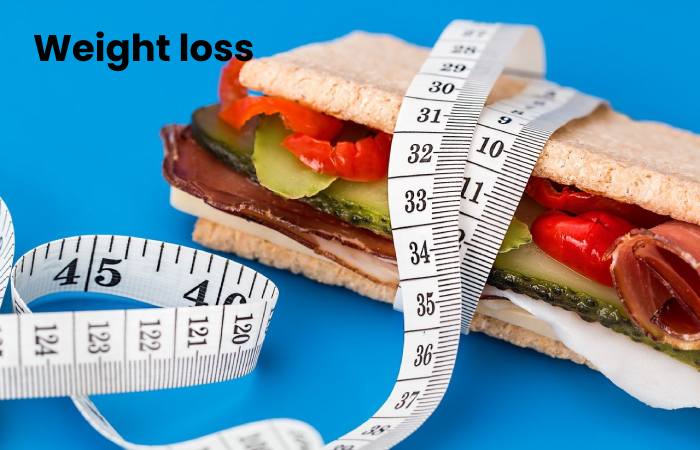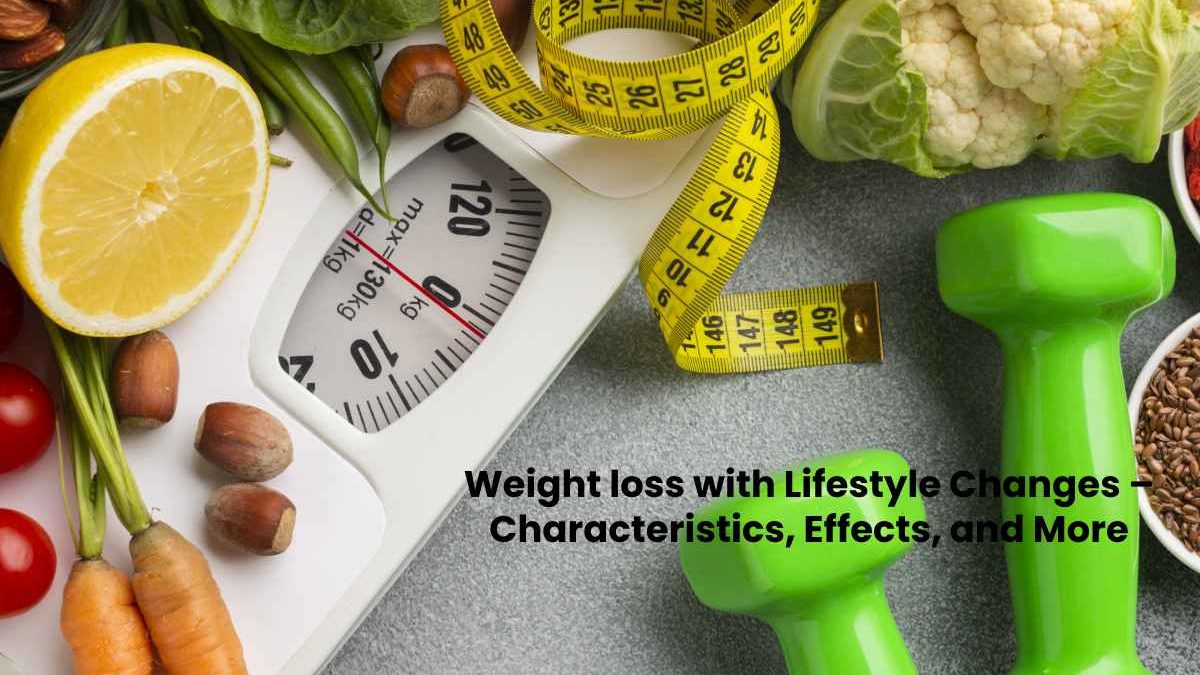Table of Contents
Lifestyle Changes, Treatment, and other Detoxifications
Weight loss with Lifestyle Change – Diet: temporary, total, or partial abstinence from food for personal or therapeutic reasons.
Diet: modification of the usual diet for medicinal purposes or to meet specific physiological needs (pregnant women, athletes, the elderly, etc.).
Prescribing a diet consists of making a list of prohibited or restricted foods and foods allowed in amounts specified for the patient.
Along with advice on their preparation, preparation, distribution.
In Other Word
- Does it include a specific meal plan?
- Should we give up or significantly reduce certain foods?
- Do you have to weigh, calculate, count…?
- The goal is to reshape and lose weight.
Gone is the glorification of deprivation that at once presented as a discipline. What’s in fashion now? Well-being and “self-care” illustrated in bold strokes with stacks of smooth stones, bamboo, and ladies doing yoga in white with a glass of green smoothie. And yet we know. Even the best brand change will not be enough to prevent the inevitable. These are still Diets and Regimes—Diet: temporary, total, or partial abstention from food for personal or therapeutic reasons.
Diet:
Modify the usual diet for therapeutic purposes (in case of diabetes, gout, obesity, etc.) or to meet specific physiological needs (pregnant women, athletes, older adults, etc.). Prescribing a diet consists of drawing up a list of prohibited or restricted foods and foods authorized in defined quantities for the patient, together with advice concerning their preparation, cooking, distribution, etc. ( Source )
In Other Words
- If the goal is to resculpt and lose weight, it’s a diet (or a diet).
- Does it include a specific meal plan? It’s a diet (or a diet).
- Must we give up or significantly reduce certain foods? It’s a diet (or a diet).
- Do you have to weigh, calculate, count? It’s a diet (or a diet).
- It is also a diet. (Or a diet.) if we have to eat – or not eat – at certain times, guess what?
Since the harmful consequences of diet culture began to be exposed, the diet and weight loss industry has had to undergo a rebranding. Gone is the glorification of deprivation once presented as a discipline. What’s in fashion now? Well-being and “self-care” illustrated with large strokes of piles of smooth stones, bamboo plants, and ladies doing yoga dressed in white with a glass of green smoothie.
Weightloss

There is a wide variety of diets to lose weight. The high-protein, mono-diet, or low-carbohydrate diets are best known. However, despite achieving short-term weight loss goals, these diets do not provide lasting results. The best diet for weight loss is a combination of a nutrient-dense diet, regular physical activity, and good mental health.
Characteristics of a Balanced Slimming Program
- Weight loss between 500 g and 1 kg per week
- Physical activity integrated into the program
- Work on positive body image and self-acceptance
- It should lead to long-term healthy eating habits.
The Fundamental Principles of Food.
Any weight gain or loss results from a change in our calorie intake. To achieve energy balance, you must expend as much energy as you consume. Calories represent the energy value of food. The more calories the food holds, the more power we have to pay to compensate
How does the Diet to Lose Weight Work?
To lose weight, therefore, it is necessary to create a negative balance, that is, to burn more energy than the calories consumed. A reasonable goal is losing 0.5 kg per week is equivalent to consuming 3,500 calories more than you consume. Therefore, this implies a negative energy balance of 500 calories per day, obtained by combining adequate dietary restriction and regular physical activity.
Several factors can affect the calorie-expended variable. for example, it was
Why is it not a Good Idea to go on a Crash Diet?
In the vicious circle of slimming diets, the primary metabolism is negatively influenced by lowering it. Basal metabolic rate is the body’s energy to perform vital functions such as breathing, blood circulation, etc. These functions account for approximately 60% of daily calorie intake. The higher our basal metabolic rate, the greater our daily energy consumption. However, crash diets slow down our primary metabolism. Weight loss diets cause our bodies to panic and energy-saving mode. Therefore, when we are at rest, we spend less energy, and consequently, the risk of gaining weight is much greater. Age is not on our side either. From 20, our primary metabolism would decrease between 2 and 3% per year. So the older we get
Men usually have a higher basal metabolic rate than women because they have more muscle mass. On the other hand, muscle mass and physical activity increase the basal metabolic rate and energy consumption. It underscores the importance of incorporating strength exercises into our physical activity routine.
What is the Best Diet to Slim Down?
Suppose you decide to lose weight. The drastic methods are too restrictive: deficient in calories, total exclusion of certain foods or certain food groups, and numerous food prohibitions. Therefore, this can lead to compulsive eating and loss of control. A sense of failure arises, and then we start another diet. The vicious circle begins—the more we do, the greater the physical and mental health risks. There is no miracle diet. We would have known about it a long time ago if it existed!
The Criteria of a Good Diet according to the Balanced Body
- Do we perform a detailed and complete evaluation of our condition: including health status, lifestyle, eating habits, stress level, and physical activity?
- Is it followed by recognized medical professionals: nutritionists, kinesiologists, psychologists, doctors, and others?
- Does this method provide a realistic weight loss goal (5-10% of original weight)?
- Are you looking for moderate weight loss (no more than 0.5 to 1 kg per week)?
- Does it offer personalized advice considering our lifestyle and psychological and nutritional needs?
- If the diet provides a daily minimum of 1,200 calories for a woman and 1,800 calories for a man?
- If the diet emphasizes variety and does not avoid foods or food groups?
- Does nutrition teach you to trust your inner feelings of hunger and satiety?
- If this method encourages regular physical activity?
- Finally, does food favour a gradual and not a drastic change in our way of life?
How Lack of Sleep Affects our Weight?
We know that not everyone is created equal when it comes to weight. And since sleep disorders have a significant impact on your physical and mental health, they also affect the number on your scale. Sleep problems can cause unusual weight gain or even diseases such as diabetes.
Whether you’re looking to lose weight, maintain your weight, or improve your lifestyle, we explain why and how weight and health are closely related to the quality of our sleep.
Sleep, a Highlight of our Daily Life.
Genetic inheritance, social environment, quality of life in general and mental health: a person’s weight depends on a thousand factors and does not determine their happiness. Physical activity is undoubtedly a way to avoid being overweight, but it mainly helps you fall asleep and get a good night’s sleep. But as I’m sure you understand, many other factors can come into play. The number of hours of sleep we allow ourselves has an impact. Sleep allows us to dream, relax, and recover, but it is also one of the keys to our vitality and health.
Lifestyle Directly Related to Sleep
An experiment conducted demonstrated this unique cause-and-effect relationship. The researchers forced seven healthy adults of average weight to sleep less than five hours four nights. Their physical activity and calorie intake were enforced and strictly controlled. One week later, their fat cells are inspected. They were 30% less effective than before at storing and releasing fat.
In other words, the sleep deficit put them in a prediabetic state, as if the participants in the experiment had suddenly aged prematurely. The only method to turn the tide is to quickly reconnect with nights in abundance. Otherwise, progressive weight gain and a general metabolic disorder escalation begin.
How to Reconcile with Sleep?
There is no need to panic if it is difficult to fall asleep and our nights are restless. It is possible to achieve restful sleep without resorting to sleeping pills by adopting good habits, such as sleeping. It should be turned off at least an hour before slipping under the covers as they keep the brain alert. If you’re still having trouble turning it off at night, you can use apps or software filtering out blue light. And anyway: sift through your living space, you’ll signal to your eyes and brain that “it’s almost time to sleep.”
Conclusion
To lose weight without forcing yourself and without depriving yourself, you must listen to your body and follow the natural rhythms of the day and night! What should you do if your weight and waist size is standard and you still want to lose weight First, ask yourself the reasons for your choice. If it’s just a matter of looks, pay more attention to improving your body image. If your weight is average, but your lifestyle is unhealthy, this can be a good reason to change your diet. Of course, I would lose weight.
Also Read: Black veganism


